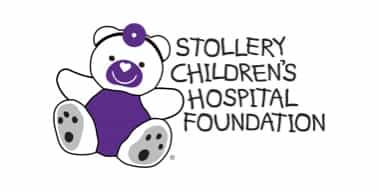Feeling sad or down is normal from time to time, especially after tough times. This can be a break-up or troubles with friends or family. We might not expect it but sometimes we can feel down or burnt out after adjusting to a really big change in life. Such as starting high school or moving out. Generally, after some time, those sad feelings will go away. And this allows us to get back to our usual lifestyle.
Depression is feeling sad or down but we might notice that it’s a very intense feeling. It lingers for a longer period of time, and stops us from doing the things we want to do. It may feel like the sadness doesn’t go away with time. There is no simple reason that explains how depression begins. The good news is that depression can be managed. We can still thrive and live a good life even when living with depression!
Like many mental health concerns, people experience depression differently. When we begin to notice signs of depression, it is important to manage it early before it grows into a bigger issue.
Signs of Depression
Individuals are unique, so depression can look different from person to person. However, depression can cause changes in how your body or heart feels. It can also affect what or how you think, and how you behave. When you notice these changes sticking around for at least 2 weeks, that’s a pretty good sign that you should look into mental health supports.
Here are some common signs of depression.
Physical
- Feeling tired most of the time
- Low energy and having little to no motivation
- Sleep troubles
- Sleeping more or less than usual
- Not feeling rested when waking up
- Changes in appetite
- Eating less or more than usual
- Changes in weight
- Body aches and pains that can’t be explained
Feelings
- Feeling numb or empty
- Feeling apathetic. You stop caring about things you used to care about.
- Disinterested in activities that used to be enjoyable
- Feeling worthless or guilty
- Feeling like everything is becoming ‘too hard’
- Feeling down/low/unhappy/blue
- Not feeling happy even when good things happen
- Feeling hopeless that things will get better
Thoughts
- Having thoughts of hurting ourselves
- Having thoughts of ending one’s life
- Thinking you are worthless or a failure
- Blaming and criticizing ourselves
- Having a hard time concentrating or focusing
- Having negative thoughts about people or things happening around you
Behaviors
- Having troubles making decisions, concentrating, or remembering things
- Withdrawing from friends and family
- Struggling to complete things
- Having difficulty with school, work or other responsibilities
- Using more alcohol and other drugs
- Becoming noticeably more irritable or agitated
Practical Things That You Can Do
Force a smile
Smiling can relax vocal cords and affect hormones in your body. It also loosens muscles of the face and around your cheekbones. This can trigger a happier mood and encourages friendliness from others.
There are lots of things that you can do to improve how you feel and get better at managing tough feelings. It can feel hard to find the energy or motivation to do these things. Sometimes it might feel like nothing will help. Try starting with one thing you can do, then slowly add things in step by step. This can help you feel like you’re making progress.
It’s easier to deal with the challenges of low mood when they’re recognized early. You can take action on your own or with support from friends, family or professionals.
Take Care of Your Body
- Physical health is directly connected to mental health. Sleeping enough, eating nutritious foods, and exercising when possible can go a long way in helping manage sad feelings.
Talk to Someone
- It may feel embarrassing or shameful to talk about your concerns. This is normal. However, talking about it with someone you trust can help. You might be able to better understand your concerns and get more help if needed.
Are you uncertain about where to start or feel uncomfortable talking to a healthcare provider? If you’d like to first open up to someone who can understand what you are going through, we have peer support workers to talk to! Kickstand peer support workers come from different backgrounds and have their own experiences with mental health or substance use challenges. They are trained for virtual appointments and can offer you emotional support and connections based on their lived experiences. Click here to make a free appointment!
- If you feel ready for chatting with a mental health therapist, click here to check out available appointment times.
Stay Connected
- You don’t have to talk about your feelings with people in your life if you’re not ready. Just being with loved ones, friends, and people you trust can help. Even though your brain may tell you ‘no’, there is important value in staying connected with others and saying ‘yes’ to invitations from friends.
Break Tasks Down Into Manageable Parts
- When you are feeling very low, even small tasks can feel huge and overwhelming. So, breaking important tasks down into smaller chunks can help.
Get Into Life!
- It can be difficult to start doing something especially when feeling low, down, or unmotivated. However, engaging in activities you love can help you feel good. Or try learning something new that can help you feel accomplished. By doing so, this will help you engage in life!
Some practical things that you can try today include:
Change your posture
Try not to slouch or slump. Slouching impairs mental cognition. It increases your feelings of being down or tired. Try straightening your spine. Hold your head up high, and open your shoulders. Keep breathing calmly. Chances are you’ll feel a boost in energy and self-confidence.
Hug yourself
Act as if...
Don’t lie to yourself or others or hide how you are feeling. It is important to be yourself. It is okay not to be okay.
“Act as if…” is a way to do something that may help you feel a bit better. Those feelings can build on themselves and get parts of your brain working to help you climb out of the place where you are feeling down.
Talk to a Medical Professional
Sometimes, people can experience a constant low mood that does not seem to go away, no matter what. If you are experiencing this might find it helpful to speak with your doctor. Doctors can help find the right medication or treatment (eg. therapy) to help you feel better. You deserve to get the support you need!
Check out this page for more information on free youth mental health services that you or a loved one can access through our virtual clinic, Kickstand Connect.
Sources:
Low Mood & Depression – Foundry – (foundrybc.ca)
Jigsaw, The National Centre for Youth Mental Health | Frayme



